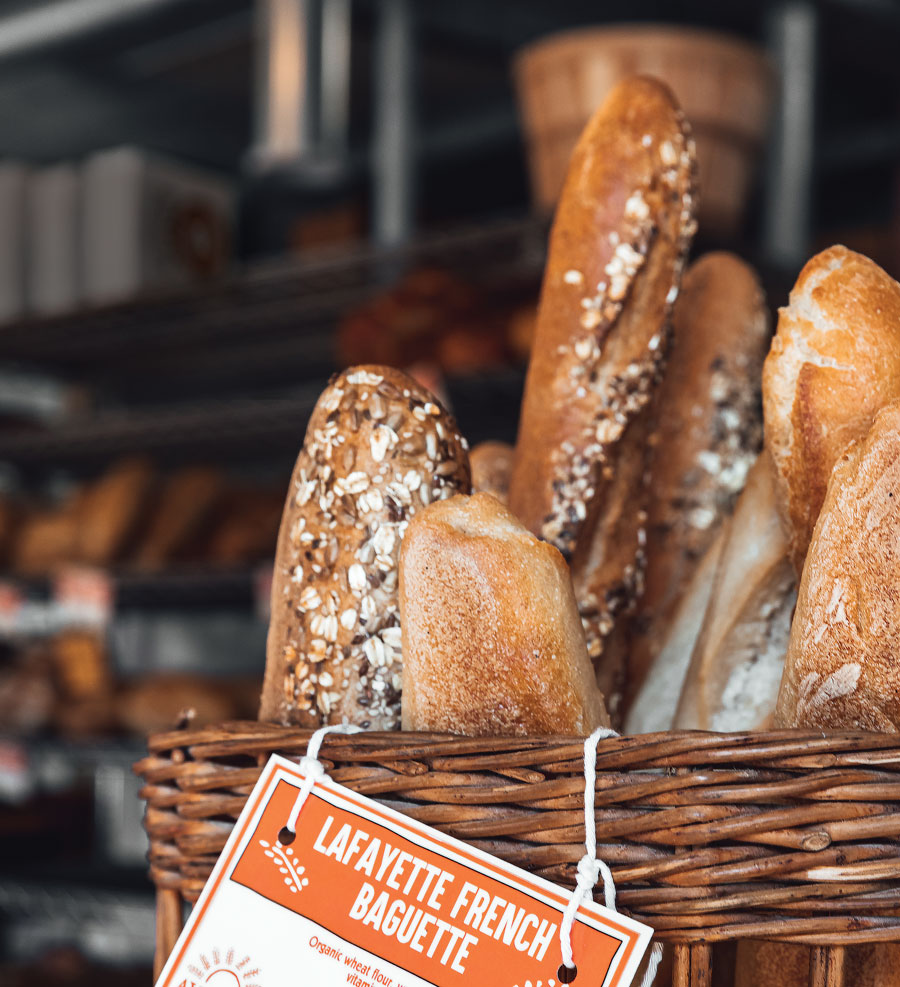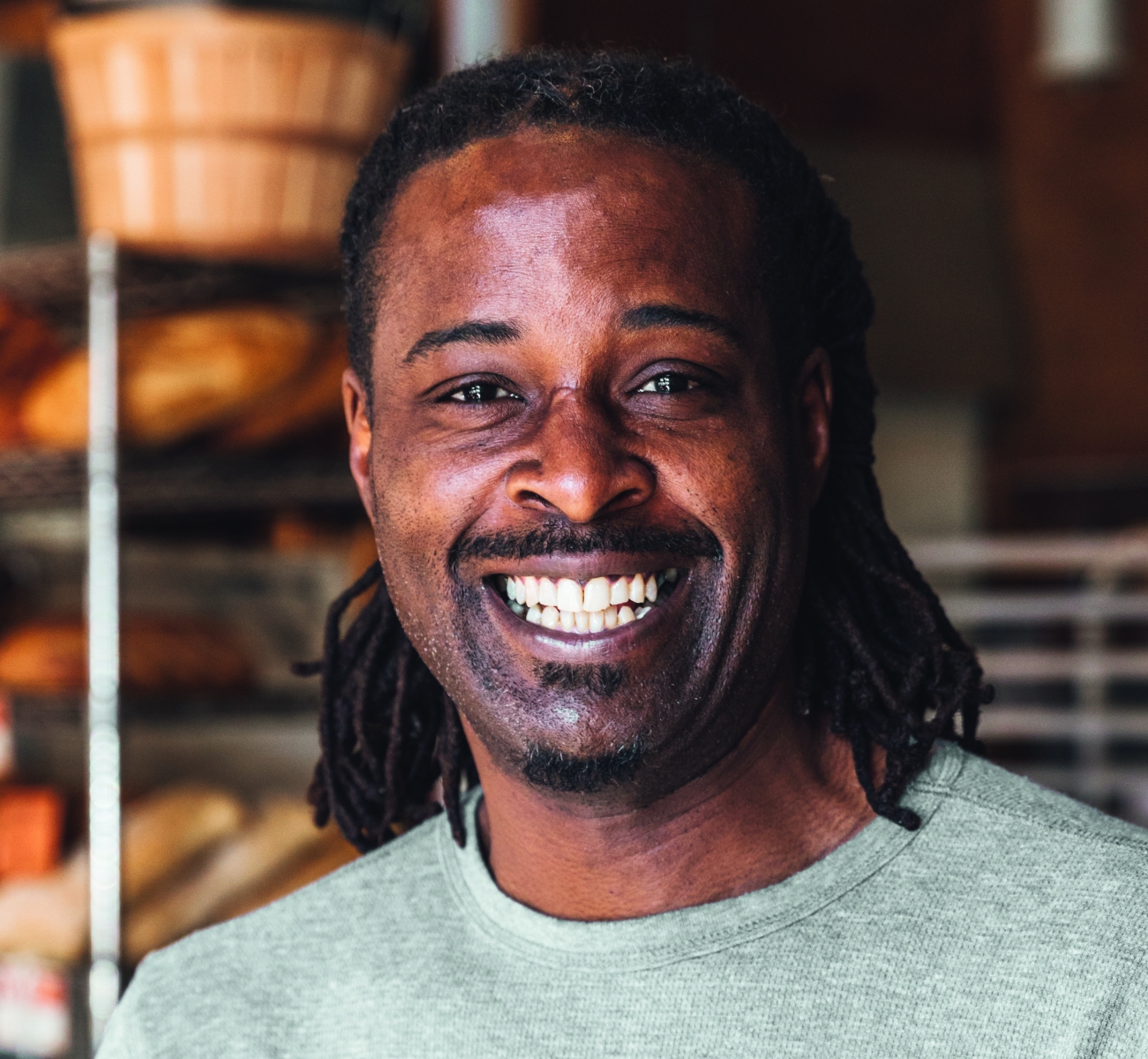
In baking, the starter is the basis of a loaf of bread. It consists of only water and flour, but it’s what gives the bread its characteristic flavor and helps it rise. There’s also no yeast, which means other than the water and flour, patience and attention to detail are the other essential ingredients.
Tending to the starter is a precise process, one that Curtis Wooten, production manager at Avalon, knows well.

If there is a misstep along the way, “we have issues,” Wooten says, adding “but that’s where the skill comes in with an artisan product. If it’s too hot in there we have to make so many adjustments just to get it to act right. We use no yeast in our sour products; that’s what makes us special.”
Avalon International Breads, which marks 20 years of being in business this month, certainly helped feed the starter that led to the redevelopment of the neighborhood. There was an effort on multiple fronts to rebrand the area from Cass Corridor to Midtown, including the work of groups like the nonprofit University Cultural Center Association, then later Midtown Detroit Inc., led by Sue Mosey.
The new Little Caesars Arena is opening in the neighborhood and the QLine is rolling through, connecting the area to downtown. In addition to longstanding businesses such as Traffic Jam and Mario’s, newer restaurants as well as a mix of retail including Shinola and Third Man Records have set up shop in Midtown in the past 20 years. These newer developments added to an already rich creative community in the area.
Avalon helped define what it means to be a good business in Detroit, adopting a triple-bottom-line business model. There was no recycling in the city, so they had volunteers cart the materials to Southfield. From day one, they pledged to use 100 percent organic flour. They cultivated a tight-knit, close family atmosphere that was also fun. Even when they were working 90 hours a week, Wooten remembers a blistering summer day when co-founders Ann Perrault and Jackie Victor brought in water guns, which sparked a fight to cool off.
 They also a wanted to pay people good wages, offer health insurance, and empower them to be a part of the company’s growth. The environment has helped people like Wooten stay for the long term; he’s been there off and on for 17 years.
They also a wanted to pay people good wages, offer health insurance, and empower them to be a part of the company’s growth. The environment has helped people like Wooten stay for the long term; he’s been there off and on for 17 years.
Perrault and Victor were “early adopters” in the neighborhood’s revitalization. “They naturally attracted a lot of energy around them,” says Mosey, whose organization was instrumental in leading the rebranding of the area, which encompasses the cultural center, the hospital systems, and Cass Corridor. In a Detroit News article from April 13, 1997, a couple of months before Avalon opened, one resident was quoted as saying, “Society has forgotten the people of the Cass Corridor except when it comes to dump society’s human discards.” In the 1990s, it was one of the city’s poorest neighborhoods, with rampant drug use, homelessness, and prostitution.
The neighborhood also lacked amenities, says Mosey, and there wasn’t a lot retail and other than a few longtime restaurants and a food co-op, not much in terms of food. But there were always artists and longtime businesses, as well as the people who already lived there and the workers at the hospitals, cultural institutions, and the university.
The Avalon founders saw potential, even if their idea seemed crazy at the time.
“The selling of a high-end product in the Cass Corridor is quite the dichotomy,” Perrault says.
Today Avalon employs 175 people at all of their locations, with revenues of $3.25 million in 2016 and 100 wholesale accounts, a large baking production facility on the east side of Detroit, and new retail spinoffs in Ann Arbor and downtown Detroit, which opened in April. But it all started with the 2,000-square-foot bakery on Willis, a former art gallery that was a “cement cave,” Victor recalls, with no windows, plywood doors, one lightbulb hanging from the ceiling, and a pipe coming from the back where the toilet used to be.
There were a series of events that led to the “epiphany” of opening Avalon International Breads, Victor says over coffee at Avalon’s storefront café located in the production facility, which was once a warehouse on the east side of Detroit.
 As a child, she vividly remembers being in the back of the family station wagon as they drove back and forth from Detroit to the suburbs where they lived. She would see “disparity in wealth and living conditions…for some reason I couldn’t shake it. So I would ask my parents a lot, ‘Why?’”
As a child, she vividly remembers being in the back of the family station wagon as they drove back and forth from Detroit to the suburbs where they lived. She would see “disparity in wealth and living conditions…for some reason I couldn’t shake it. So I would ask my parents a lot, ‘Why?’”
They didn’t really have a good answer, so when she arrived at the University of Michigan, she still had these “burning questions.” She became a political activist on campus, and while there she heard James and Grace Lee Boggs speak in one of her classes.
“Jimmy once said, and it really stuck in my head, ‘Don’t wait for the man to create your job. Bake your own bread, fix your own shoes, build your own bikes.’ The idea of creating these sustainable communities that looked like the world we wanted to live in instead of building [huge developments that receive huge tax breaks] that we hoped would sort of trickle down to the neighborhoods, that just made sense to me.”
At the same time Victor would occasionally volunteer at Wildflour Bakery in Ann Arbor and recalls thinking as fresh loaves of bread came out of the oven, “this is an honest way to make a living.”
Years later, after living in Detroit and working as a political activist, she met Perrault through mutual friends. They were running the monthly Detroit Women’s Coffeehouse, and they wanted to collaborate on something else together, eventually leading them to open the bakery. They apprenticed at Stone House Breads in Leland and spent a year developing a business plan. They secured startup capital from friends and family.
“Baking bread is a communal experience. It’s spiritual.” – Jackie Victor
They quickly established themselves as a “gathering spot for bread lovers,” as a 1998 Free Press article put it, with Avalon attracting a diverse customer base.
They also helped nurture other businesses such as Angela Harris, owner of hair salon Textures by Nefertiti and founder of the Spiral Collective. She’s been in the neighborhood for 15 years.
“One of the things that was so profound about … Jackie and Ann was that they asked us how they could be of service to us to help us on the block,” Harris recalls, adding that they gave her a $5,000 loan to install windows at her space.
“I will never forget that. They do their best to hire from the community…they are who they say they are.”
After a few years, they began to outgrow the space, prompting them to eventually purchase the production facility in 2011. In this industrial-heavy area on the east side, there aren’t many fresh food options, so last year the café opened, selling salads and sandwiches and offering a $5-a-bag baked goods deal on Fridays.
 Revitalization efforts in the city’s central core compared with outer neighborhoods and distribution of development are at center of debate in Detroit. Victor’s long-term vision is to do what Avalon did on Willis Street in other neighborhoods throughout the city through smaller businesses that would employ locals. She would like to partner with community organizations so these smaller storefronts could “be an economic stimulator or magnet for other small retail in these neighborhoods that are considered, again, the narrative is you can’t do business there. I know that’s not true and I know there are people in these neighborhoods who are underserved.”
Revitalization efforts in the city’s central core compared with outer neighborhoods and distribution of development are at center of debate in Detroit. Victor’s long-term vision is to do what Avalon did on Willis Street in other neighborhoods throughout the city through smaller businesses that would employ locals. She would like to partner with community organizations so these smaller storefronts could “be an economic stimulator or magnet for other small retail in these neighborhoods that are considered, again, the narrative is you can’t do business there. I know that’s not true and I know there are people in these neighborhoods who are underserved.”
As for the change in Midtown, Victor says, “It’s hard for me to take all that in and I certainly can’t take all that credit. There are people who have worked harder than we’ve worked…[But] we sort of captured the imagination in a way that kind of only a bakery could do because all of the things bread represents.…Breaking bread is a communal experience. It’s spiritual. Having a gathering place, a third place that’s neither home nor work, we didn’t have that in Detroit [at the time].
“A bakery is something you come to every day. It’s different than a clothing store. It’s different than a bar or a restaurant. It’s become a part of people’s daily life, but I also think it inspired people because we were so small and scrappy and able to change the narrative.”
|
| Ã˝ |
|








